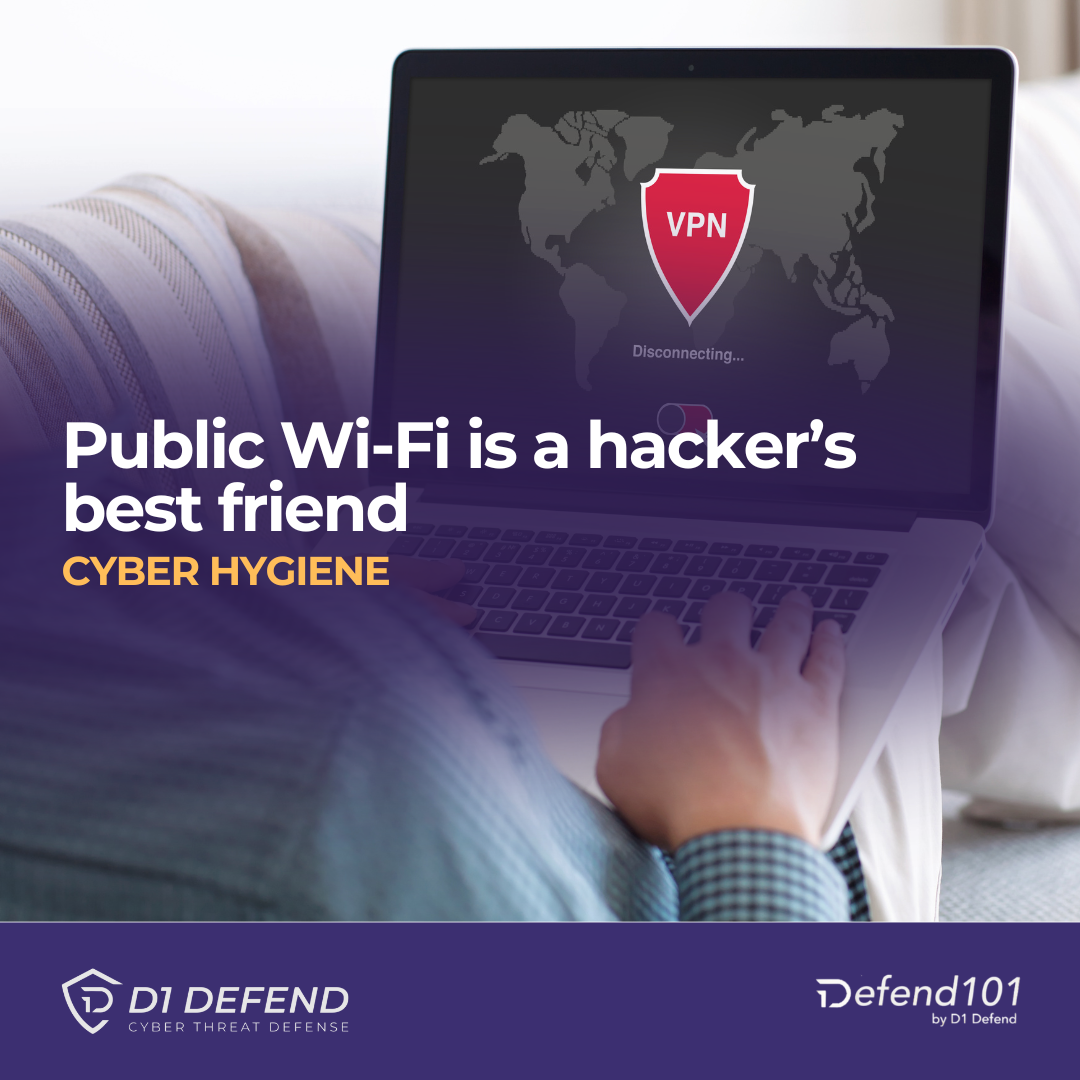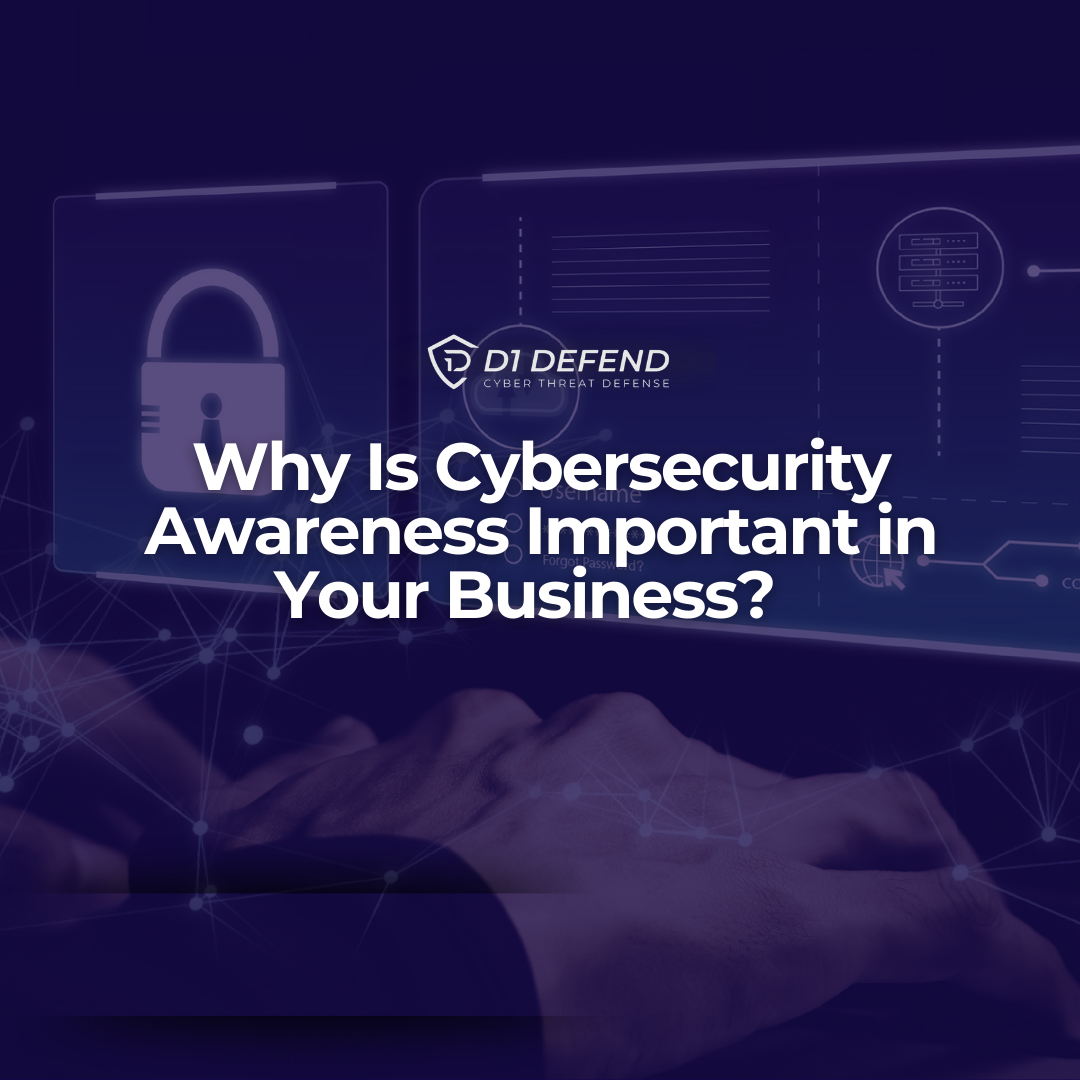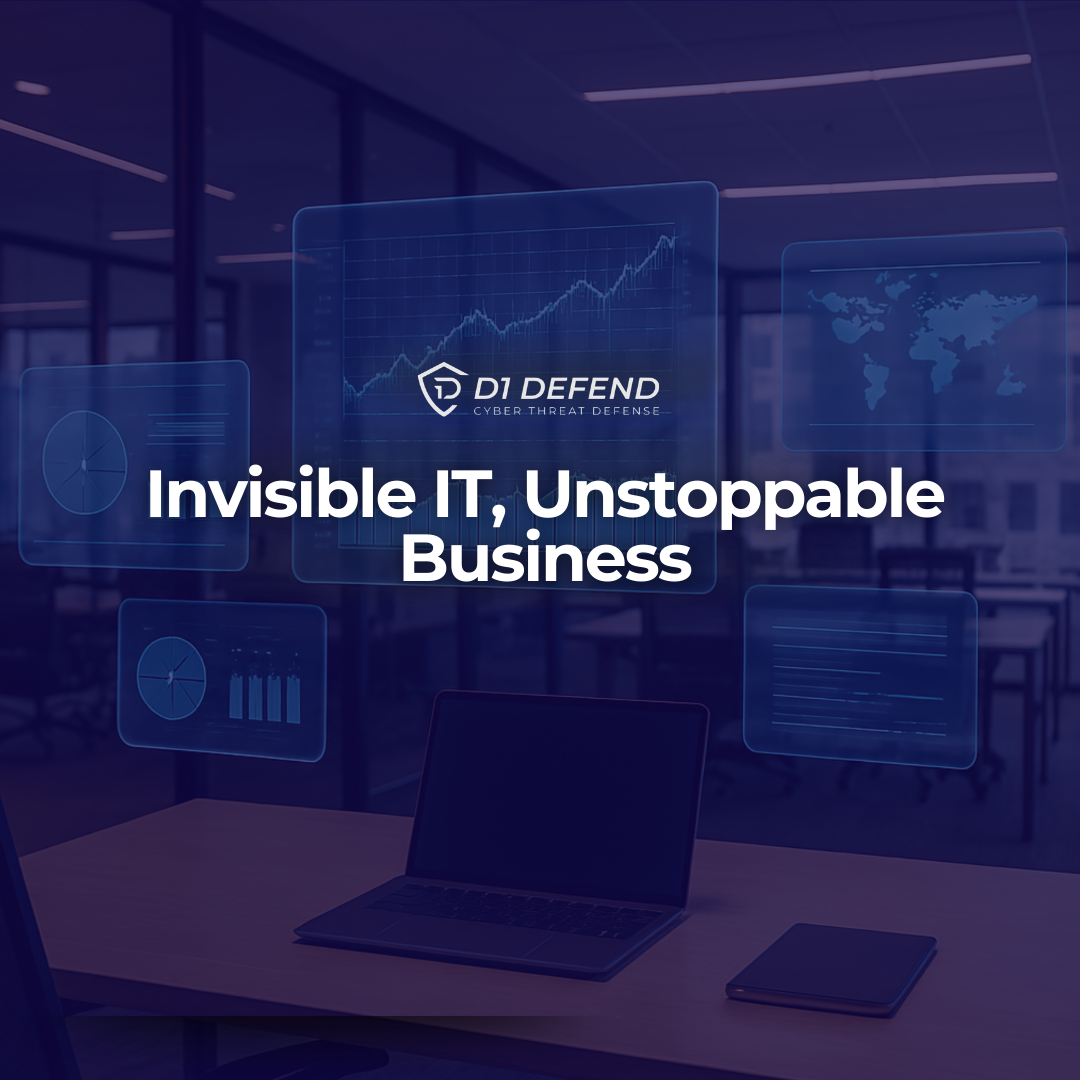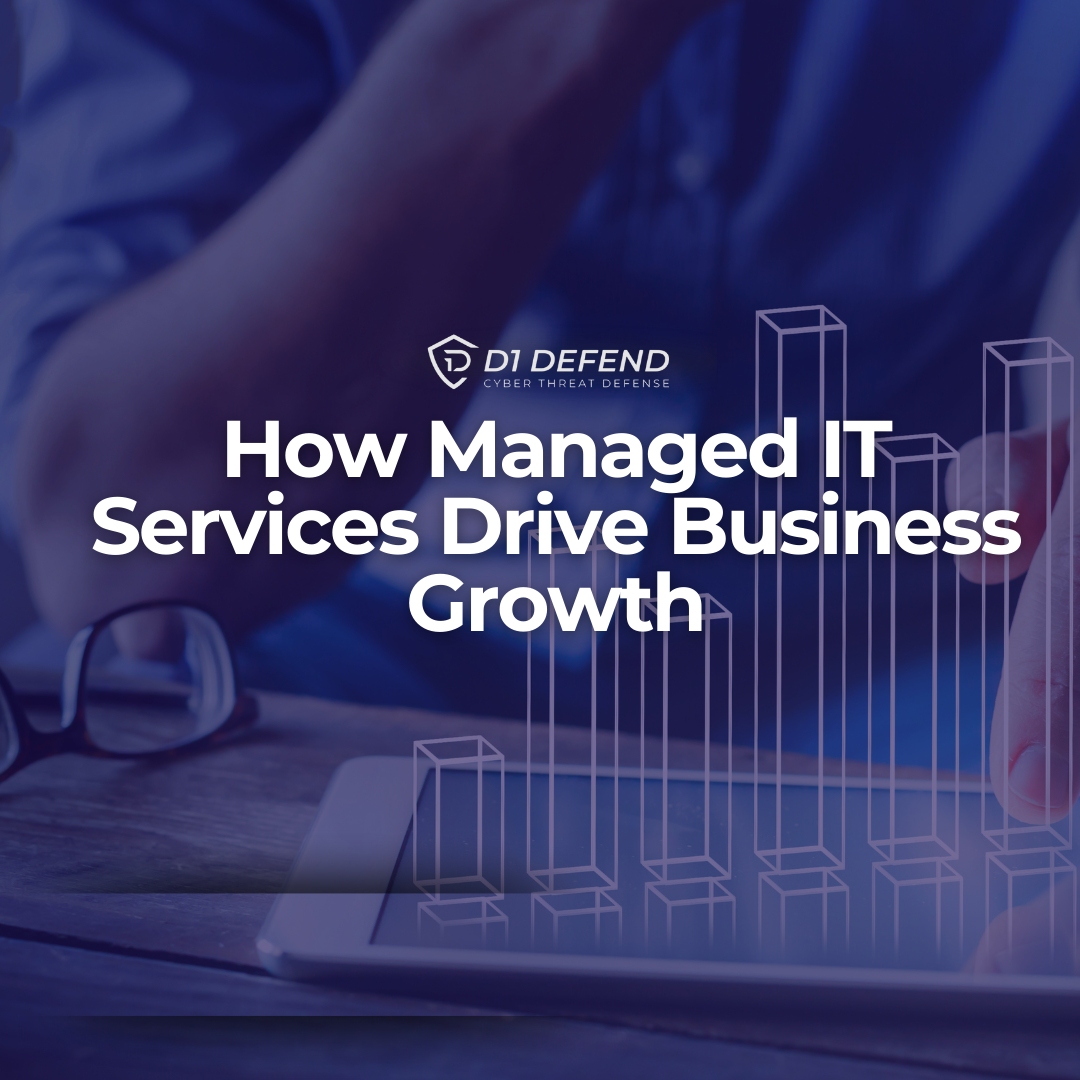Blog
Keep Your Workforce Secure | Cyber Hygiene for Remote and On-Site Teams
September 9, 2025
Why Cyber Hygiene Matters More Than Ever
In today’s hybrid and remote-first world, one thing hasn’t changed: cybersecurity is still your first line of defense.
Whether your employees are working from the office, their living room, a coffee shop, or a client site, poor cyber hygiene can be the single point of failure that lets attackers into your systems.
One reused password. One unsecured device. One missed update.
It only takes one.
At D1 Defend, we work with businesses across California to build strong cyber habits that work anywhere your employees do. Here’s how you can protect your team—whether they’re in the building or not.
What Is Cyber Hygiene?
Cyber hygiene refers to the daily cybersecurity practices your team follows to maintain the health and safety of your digital environment. Think of it like brushing your teeth or washing your hands—simple habits that prevent big problems.
For businesses, it means:
– Locking devices
– Avoiding unsafe links
– Using strong passwords
– Keeping software updated
– Connecting only to secure networks
And making these practices second nature—for every employee, no matter where they work.
Schedule a call with an expert
By providing your phone number, you consent to receive text messages from D1 Defend. Standard message and data rates may apply. Message frequency may vary. Reply STOP to opt out or HELP for assistance.
We will not share your opt-in status with any third parties for purposes unrelated to the services provided through this campaign.
Top Cyber Hygiene Practices for On-Site Employees
Just because they’re behind your company firewall doesn’t mean they’re safe. On-site employees need to stay vigilant.
Lock Devices When Away
Employees should lock their screens when stepping away from their desks, even for a minute. Unauthorized access is a real risk—even internally.
Use Strong, Unique Passwords
Encourage strong passwords (or better yet, passphrases) that are unique for each account. Consider using a password manager to help staff keep track.
Use Secure Company Wi-Fi Only
No piggybacking on guest or open networks. Keep business operations on secure, encrypted Wi-Fi connections—segmented from public access if possible.
Stay on Top of Updates
Ensure all endpoints are running the latest patches and updates. Outdated software is a major entry point for attackers.
Top Cyber Hygiene Practices for Remote Workers
Remote workers are your most vulnerable attack surface. Why? Because they operate outside your physical IT boundaries.
Here’s how to reduce their risk:
Avoid Public Wi-Fi (Or Use a VPN)
Working from a café or airport? Employees must avoid connecting to unsecured Wi-Fi. If necessary, a company-approved VPN is non-negotiable.
Keep Home Routers Updated
Encourage remote workers to change default passwords on their home routers and update firmware regularly.
Separate Work and Personal Devices
Employees should avoid using personal devices for business tasks. If that’s not feasible, ensure you have endpoint protection installed and managed.
Be Wary of Phishing Emails
Remote workers are prime targets for phishing. Train them to:
– Hover over links
– Never download unsolicited attachments
– Confirm suspicious requests by phone or secure channels
Shared Practices: What Everyone Needs to Do
Regardless of location, every team member should:
Enable MFA (Multi-Factor Authentication)
MFA adds an extra layer of protection—something hackers can’t easily bypass, even if credentials are compromised.
Update Devices Regularly
Don’t postpone updates. Your IT team should automate patching, but users must not delay reboots and installs.
Report Suspicious Activity Immediately
Make it easy and expected for employees to report strange behavior—be it a pop-up, an odd email, or unexpected access requests.
Attend Regular Cybersecurity Training
A well-informed employee is your best defense. Regular, short, engaging training keeps awareness high and habits fresh.
The Cost of Poor Cyber Hygiene
If you think these are small oversights, think again:
– 88% of data breaches are caused by human error
– Remote workers are 47% more likely to click on phishing links
– The average cost of a ransomware attack is over $4.5 million
You can’t afford to overlook cyber hygiene.
How D1 Defend Keeps Hybrid Teams Secure
We specialize in helping businesses secure their workforce—wherever they work.
Here’s how we help:
🛡️ Workforce Security Assessments – Identify your team’s weak points
🔧 Endpoint Protection & Patching – Keep all devices secure and up to date
🌐 VPN + Firewall Setup – Secure remote work without compromise
🎓 Employee Cyber Awareness Training – Build a culture of security
📊 24/7 Monitoring – Real-time alerts and response for threats
Your Team Deserves More Than Just Tools—They Need Habits
Tools are important, but without good cyber hygiene, they’ll fail. That’s why we work with businesses to build repeatable, reliable, human-first practices that reduce risk—no matter where your team logs in.
📞 Ready to make your workforce cyber-smart?
D1 Defend
www.d1defend.com/contact-us
sales@d1defend.com
(714) 988-3493








